mercredi, 04 décembre 2024
L'École de Francfort: la pensée néocommuniste qui a changé l'Occident
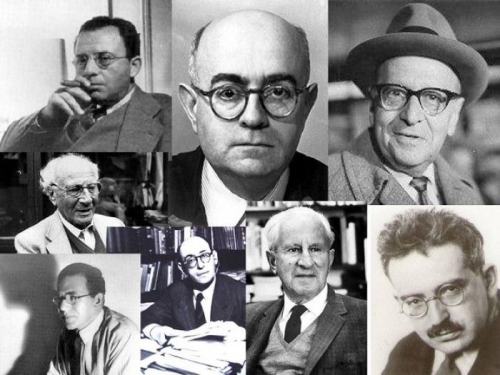
L'École de Francfort: la pensée néocommuniste qui a changé l'Occident
par Sara (Blocco Studentesco)
Source: https://www.bloccostudentesco.org/2024/11/21/bs-scuola-di...
L'école de Francfort est une école de pensée qui a vu le jour dans les années 1920 dans la République de Weimar. Les philosophes adhérant à cette école ont opéré une synthèse entre la psychanalyse freudienne et l'idéologie marxiste, conduisant à faire émerger ce que l'on pourrait appeler le « néo-communisme psychanalytique ». Les membres de cette école ont réussi, surtout après la Seconde Guerre mondiale, à infiltrer les écoles publiques, le gouvernement et à influencer l'ensemble de la société occidentale. Leurs idées sont d'ailleurs toujours à l'ordre du jour.
Theodor Adorno, le penseur le plus important de l'École, estimait que les conceptions traditionnelles de la société, telles que les vérités universelles, cachaient souvent des contradictions et des problèmes. Pour lui, la tâche de la théorie sociale et de la pensée critique était précisément de mettre au jour ces contradictions. Dans son livre intitulé « Dialectique négative », Adorno a critiqué la philosophie traditionnelle pour sa tentative de créer des systèmes logiques et ordonnés pour expliquer le monde, allant même jusqu'à affirmer qu'elle servait à justifier l'oppression sociale. Sa critique s'étendait également à l'art qui, selon lui, perpétuait l'oppression sociale en présentant des visions d'harmonie, de beauté et de vérité. Dans une déclaration célèbre, il a écrit : « Écrire de la poésie après Auschwitz est barbare », ce qui signifie que l'art qui véhicule des idéaux de beauté et de vérité renforce les idéologies oppressives. Selon Adorno, ce qui paraît beau ou harmonieux exclut et opprime ce qui n'est pas conforme à cet idéal, et doit donc être déconstruit.
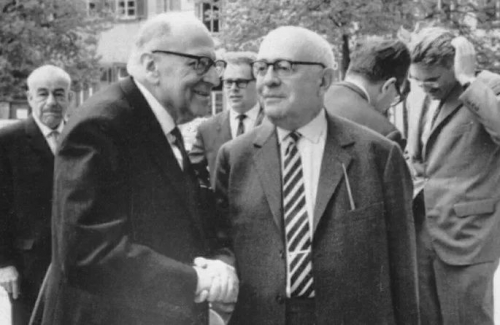
Cette critique de la beauté et des valeurs traditionnelles a alimenté une approche sceptique qui a encouragé la résistance à ce qu'Adorno a appelé la « coercition spiritualisée ». Les idées d'Adorno ont laissé un héritage durable sur la pensée critique contemporaine. Les critiques d'aujourd'hui se méfient souvent de la beauté, de l'harmonie et des récits moraux. Ce regard critique a conduit à la perception que toute forme d'art traditionnelle ou belle est « fasciste » parce qu'elle implique une hiérarchie : si quelque chose est beau, quelque chose d'autre doit être laid ; si quelque chose est vrai, quelque chose d'autre doit être faux. Cette attitude peut être observée dans la critique culturelle moderne, où la beauté est souvent déconstruite. Cette critique accuse souvent l'art traditionnel, les récits et même la morale d'incorporer des systèmes cachés de violence et de conformité.
Le rejet de l'esthétique traditionnelle par Adorno présente des similitudes avec l'activisme moderne « woke », qui cherche à démanteler les institutions et les structures sociales jugées oppressives, y compris les normes de beauté et de moralité. Ce type d'activisme célèbre souvent des figures qui remettent en question les hiérarchies traditionnelles, comme les « filles patronnesses » ou les mouvements de sexualité alternative, comme une forme de résistance contre le patriarcat et les normes conservatrices. Ces attitudes se reflètent en fait dans les théories de l'école de Francfort, qui considérait l'opposition à la tradition comme un acte libérateur.
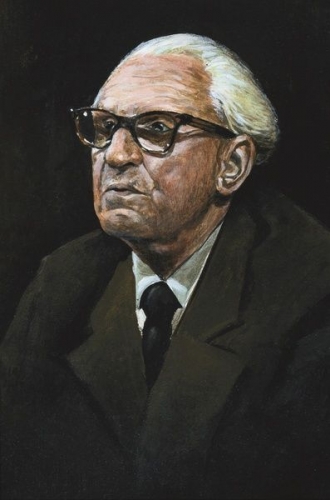
Herbert Marcuse, un autre membre influent de cette école, a élargi la critique d'Adorno en y intégrant les idées de Freud sur la sexualité. Dans son livre Eros et Civilisation, Marcuse affirme que les systèmes économiques capitalistes répriment la sexualité pour maintenir le contrôle sur la main-d'œuvre. Dans ce contexte, les relations hétérosexuelles et reproductives étaient considérées comme fonctionnelles pour la production capitaliste. Avec le communisme, cependant, cette répression disparaîtrait, permettant à la sexualité de s'exprimer librement. Bien que Marcuse se soit inspiré de Freud, il s'en est éloigné en rejetant l'idée que la répression était nécessaire à la civilisation. Il imagine une « civilisation non répressive » dans laquelle le travail deviendrait un jeu et l'énergie érotique s'exprimerait librement. Marcuse voit dans le mythe de Narcisse, qui tombe amoureux de son propre reflet, une métaphore du rejet des normes sociales et de l'adhésion à l'individualisme. Selon lui, le dépassement des distinctions traditionnelles de genre et de sexualité conduirait à une nouvelle culture libérée, dans laquelle le retour à un état pré-répressif dissoudrait les structures sociales traditionnelles.
Après tout, l'école de Francfort nous a laissé un héritage précieux: l'art de la critique perpétuelle, qui ne manque jamais une occasion de démonter, de déconstruire et finalement de détruire tout ce qui représentait autrefois la beauté, l'ordre et la vérité. Aujourd'hui, son influence se reflète dans une société qui célèbre la désintégration des valeurs traditionnelles, qui considère l'harmonie comme un acte d'oppression et l'individualisme comme un signe de libération. En associant Marx et Freud, l'École a créé un cocktail mortel d'idéologie et de psychanalyse qui continue à renforcer la croyance que toute hiérarchie, toute norme, toute structure sociale est une forme déguisée de domination. Et, bien sûr, ce qui reste à célébrer, ce sont les petites victoires contre la beauté et l'ordre: les nouveaux héros sont les « meilleurs » ennemis de la beauté, les champions de l'idéologie, les adversaires de l'harmonie qui luttent courageusement contre les vestiges d'une société qui ose encore apprécier le classicisme et l'élégance. Car, comme l'enseigne l'École de Francfort, tout ce qui est trop beau, trop soigné, trop traditionnel, est assurément fasciste, oppressif et digne d'être balayé. Finalement, pour ceux qui ont appris à mépriser tout ce qui représente la vérité et la beauté, il y a toujours un combat à mener contre une civilisation qui n'a jamais pris la peine de perdre. Mais au milieu de cette tempête idéologique, il y a encore de la place pour ceux qui croient que la beauté et l'ordre peuvent être des forces libératrices. C'est en redécouvrant la beauté et en embrassant les valeurs qui ont résisté à l'épreuve du temps que nous pourrons véritablement construire une société qui non seulement existe, mais prospère.
19:04 Publié dans Philosophie, Sociologie | Lien permanent | Commentaires (1) | Tags : philosophie, sociologie, école de francfort, theodor w. adorno, herbert marcuse |  |
|  del.icio.us |
del.icio.us |  |
|  Digg |
Digg | ![]() Facebook
Facebook
mercredi, 23 octobre 2013
Herbert Marcuse and the Tolerance of Repression
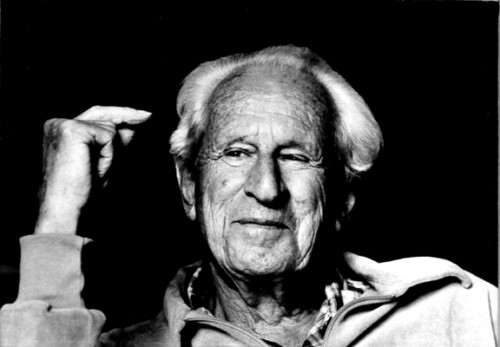
Herbert Marcuse and the Tolerance of Repression 1
by Keith Preston
Ex: http://www.attackthesystem.com
“I am not bound to defend liberal notions of tolerance.” –Left-wing anarchist activist to the author
The rise of the New Left is typically considered to have its origins in the student rebellions of the late 1960s and early 1970s when the war in Vietnam was at its height and cultural transformation was taking place in Western countries with dizzying rapidity. Yet scholars have long recognized that the intellectual roots of the New Left were created several decades earlier through the efforts of the thinkers associated with the Institute for Social Research (commonly known as the “Frankfurt School”) to reconsider the essence of Marxist theory following the failure of the working classes of Western Europe to produce a socialist revolution as orthodox Marxism had predicted.
The support shown for their respective national states by the European working classes, and indeed by the Socialist parties of Europe themselves, during the Great War which had broken out in 1914 had generated a crisis of faith for Marxist theoreticians. Marx had taught that the working classes had no country of their own and that the natural loyalties of the workers were not to their nations but to their socioeconomic class and its material interests. Marxism predicted a class revolution that would transcend national and cultural boundaries and regarded such concepts as national identity and cultural traditions as nothing more than hollow concepts generated by the broader ideological superstructure of capitalism (and feudalism before it) that served to legitimize the established mode of production. Yet the patriotic fervor shown by the workers during the war, the failure of the workers to carry out a class revolution even after the collapse of capitalism during the interwar era, and the rise of fascism during the same period all indicated that something was amiss concerning Marxist orthodoxy. The thinkers of the Frankfurt School sought to reconsider Marxism in light of these events without jettisoning the core precepts of Marxism, such as its critique of the political economy of capitalism, alienation, and the material basis of ideological hegemony.
The Institute attracted many genuine and interesting scholars some of whom were luminaries of the unique and fascinating German intellectual culture of the era of the Weimar Republic. Among these were Max Horkheimer, Theodor Adorno, Otto Kirchheimer, Franz Neumann, and Erich Fromm. But the thinker associated with the Institute who would ultimately have the greatest influence was the philosopher and political theorist Herbert Marcuse (1898-1979). The reach of Marcuse’s influence is indicated by the fact that during the student uprisings in France during 1968, which very nearly toppled the regime of Charles De Gaulle, graffiti would appear on public buildings with the slogan: “Marx, Mao, Marcuse.” Arguably, there was no intellectual who had a greater impact on the development of the New Left than Marcuse.
When the Nazis came to power in 1933, Marcuse and other members of the Frankfurt School immigrated to the United States and reestablished the Institute at Columbia University in New York City. Marcuse became a United States citizen in 1940 and during World War Two was employed by the Office of War Information, Office of Strategic Services (the forerunner to the Central Intelligence Agency), and the U.S. Department of State. Throughout the 1950s and 1960s, Marcuse was a professor of political theory at Columbia, Harvard, Brandeis, and the University of California at San Diego. During his time in academia, Marcuse continued the efforts to revise Marxism in light of the conditions of an industrially advanced mid-twentieth century society. One of his most influential works was an effort to synthesize Marx and Freud, Eros and Civilization, published in 1955, and One Dimensional Man, a critique of the consumer culture of the postwar era and the integration of the traditional working classes into the consumer culture generated by capitalism. Both of these works became major texts for the student activists of the New Left.
Because of his legacy as an intellectual godfather of the New Left and the radical social movements of the 1960s and 1970s generally, Marcuse is not surprisingly a rather polarizing figure in contemporary intellectual discourse regarding those fields where his thinking has gained tremendous influence. Much of the curriculum of the humanities departments in Western universities is essentially derived from the thought of Marcuse and his contemporaries, particularly in sociology, anthropology, gender studies, ethnic studies, and studies of sexuality, but also in history, psychology, and literature. It is quite certain that if Marcuse and his fellow scholars from the Frankfurt School, such as Adorno and Horkheimer, were still alive today they would no doubt be regarded as god-like figures by contemporary leftist academics and students. From the other end of the political spectrum, many partisans of the political right, traditionalists, religious fundamentalists, nationalists, and social conservatives regard Marcuse as the personification of evil. Because the legacy of Marcuse’s work is so controversial and polarizing, it is important to develop a rational understanding of what his most influential ideas actually were.
Although he remained a Marxist until his death, Marcuse was never an apologist for the totalitarian regimes that had emerged in Communist countries. Indeed, he wrote in defense of dissidents who were subject to repression under those regimes, such as the East German dissident Rudolph Bahro. Marcuse considered orthodox Marxism as lacking concern for the individual and criticized what he regarded as the insufficiently libertarian character of Marxism. Like many associated with the New Left, he often expressed a preference for the writings of the younger Marx, which have a humanistic orientation inspired by the idealism of nineteenth century utopian socialism, as opposed to the turgid and ideologically rigid writings of the elder Marx. The thinkers of the Frankfurt School had also been influenced by the Weberian critique of the massive growth of bureaucracy in modern societies and strongly criticized the hyper-bureaucratic tendencies of both capitalist and communist countries as they were during the Cold War period.
Marcuse regarded the consumer culture that emerged during the postwar economic boom as representing a form of social control produced and maintained by capitalism. According to Marcuse, capitalist productivity had grown to the level where the industrial proletariat was no longer the impoverished wage slaves of Marx’s era. Economic growth, technological expansion, and the successes of labor reform movements in Western countries, had allowed the working classes to achieve a middle class standard of living and become integrated into the wider institutional framework of capitalism. Consequently, workers in advanced industrial societies no longer held any revolutionary potential and had become loyal subjects of the state in the same manner as the historic bourgeoisie before them. This by itself is not an original or even particularly insightful observation. However, Marcuse did not believe that the rising living standards and institutional integration of the working classes represented an absence of exploitation. Rather, Marcuse felt that the consumer culture made available by affluent industrial societies had multiple deleterious effects.
First, consumer culture had the effect of “buying off” the workers by offering them a lifestyle of relative comfort and material goods in exchange for their continuing loyalty to capitalism and indifference to struggles for social and political change. Second, consumer culture created a kind of a false consciousness among the public at large through the use of the advertising industry and mass media generally to inculcate the values of consumerism and to essentially create unnecessary wants and perceived needs among the population. The effect of this is that people were working more than they really needed to sustain themselves in order to achieve the values associated with consumer culture. This created not only the psychological damaging “rat race” lifestyle of the competitive capitalist workforce and marketplace, but generated excessive waste (demonstrated by such phenomena as “planned obsolescence,” for example), environmental destruction, and even imperialist war for the conquest of newer capitalist markets, access to material resources, and the thwarting of movements for self-determination or social change in underdeveloped parts of the world. Third, Marcuse saw a relationship between the domination of consumer culture and the outlandishly repressive sexual mores of the 1950s era (where the term “pregnant” was banned from American television, for instance). According to Marcuse, the consumerist ethos generated by capitalism expected the individual to experience pleasure through material acquisition and consumption rather than through sexual expression or participation. The worker was expected to forgo sex in favor of work and channel libidinal drives into consumerist drives. Material consumption was the worker’s reward for avoiding erotic pleasure. For this reason, Marcuse regarded sexual expression and participation (what he famously called “polymorphous perversity”) as a potential force for the subversion of the capitalist system. As the sexual revolution grew in the 1960s, student radicals would champion this view with the slogan “make love, not war.”
As the working class had ceased to be a revolutionary force, Marcuse began to look to other social groups as potentially viable catalysts for radical social and political change. These included the array of the traditionally subordinated, excluded, or marginalized such as racial minorities, feminists, homosexuals, and young people, along with privileged and educated critics of the status quo such as radical intellectuals. Marcuse personally outlined and developed much of the intellectual foundation of the radical movements of the 1960s and exerted much personal influence on leading figures in these movements. The Black Panther figure Angela Davis and the Youth International Party (“Yippie”) founder and “Chicago Seven” defendant Abbie Hoffman had both been students of Marcuse while he taught at Brandeis. However, it would be a mistake to regard Marcuse as having somehow been a leader or founder of these movements. Marcuse did not so much serve as a radical leader during the upheavals of the 1960s and 1970s as much as he was an interpreter of social and political currents that were then emerging and a scholar who provided ideas with which discontented thinkers and activists could identify. It is often argued by some on the political right that the thinkers of the Frankfurt School hatched a nefarious plot to destroy Western civilization through the seizure and subversion of cultural institutions. This theory suggests that radical Marxists came to believe that they must first control institutions that disseminate ideas such as education and entertainment in order to remove the false consciousness previously inculcated in the masses by capitalist domination over these institutions before the masses can achieve the level of radical consciousness necessary to carry out a socialist revolution. Those on the right with an inclination towards anti-Semitism will also point out that most of the luminaries of the Frankfurt School, such as Marcuse, were ethnic Jews.
Yet the cultural revolution of the 1960s and 1970s was the product of a convergence of a vast array of forces. The feminist revolution, for instance, had as much to do with the integration of women into the industrial workforce during World War Two while the men were absent fighting the war and the need for an ever greater pool of skilled workers in an expanding industrial economy during a time of tremendous technological advancement and population growth as it does with the ambitions of far left radicals. The real fuel behind the growth of the youth and student movements of the 1960s was likely the war in Vietnam and the desire of many young people of conscription age to avoid death and dismemberment in a foolish war in which they had no stake. The sexual revolution was made possible in large part by the invention of the birth control pill and the mass production of penicillin which reduced the health and social risks associated with sexual activity. The racial revolution of the era was rooted in centuries old conflicts and struggles that had been given new impetus by growing awareness of the excesses which occurred during the Nazi period. The heightened interest in environmental conservation, concerns for populations with serious disadvantages (such as the disabled or mentally ill), increased emphasis on personal fulfillment and physical and psychological health, and concern for social and political rights beyond those of a purely material nature all reflect the achievements and ambitions of an affluent, post-scarcity society where basic material needs are largely met. Suffice to say that the transformation of an entire civilization in the space of a decade can hardly be attributed to the machinations of a handful of European radicals forty years earlier.
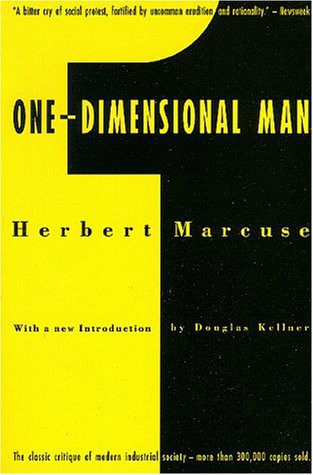 There is actually much of value in the work of the Frankfurt School scholars. They are to be commended for their honest confrontation with some of the failings and weaknesses of Marxist orthodoxy even while many of their fellow Marxists continued to cling uncritically to an outmoded doctrine. Marcuse and his colleagues are to be respected for their skepticism regarding the authoritarian communist states when many of their contemporaries, such as Jean Paul Sartre, embraced regimes of this type with appalling naivete. The critique of consumer culture and the “culture industry” offered by Marcuse, Horkheimer, and others may itself be one-dimensional and lacking in nuance at times, but it does raise valid and penetrating questions about a society that has become so relentlessly media-driven and oriented towards fads and fashions in such a “bread and circuses” manner. However, while Marcuse was neither a god nor a devil, but merely a scholar and thinker whose ideas were both somewhat prescient and reflective of the currents of his time, there is an aspect to his thought that has left a genuinely pernicious influence. In 1965, Marcuse published an essay titled, “Repressive Tolerance,” which foreshadows very clearly the direction in which left-wing opinion and practice has developed since that time.
There is actually much of value in the work of the Frankfurt School scholars. They are to be commended for their honest confrontation with some of the failings and weaknesses of Marxist orthodoxy even while many of their fellow Marxists continued to cling uncritically to an outmoded doctrine. Marcuse and his colleagues are to be respected for their skepticism regarding the authoritarian communist states when many of their contemporaries, such as Jean Paul Sartre, embraced regimes of this type with appalling naivete. The critique of consumer culture and the “culture industry” offered by Marcuse, Horkheimer, and others may itself be one-dimensional and lacking in nuance at times, but it does raise valid and penetrating questions about a society that has become so relentlessly media-driven and oriented towards fads and fashions in such a “bread and circuses” manner. However, while Marcuse was neither a god nor a devil, but merely a scholar and thinker whose ideas were both somewhat prescient and reflective of the currents of his time, there is an aspect to his thought that has left a genuinely pernicious influence. In 1965, Marcuse published an essay titled, “Repressive Tolerance,” which foreshadows very clearly the direction in which left-wing opinion and practice has developed since that time.
The essay is essentially an argument against the Western liberal tradition rooted in the thinking of Locke, with its Socratic and Scholastic precedents, which came into political reality in the nineteenth century and which was a monumental achievement for civilization. In this essay, Marcuse regurgitates the conventional Marxist line that freedom of opinion and speech in a liberal state is a bourgeois sham that only masks capitalist hegemony and domination. Of course, there is some truth to this claim. As Marcuse said:
But with the concentration of economic and political power and the integration of opposites in a society which uses technology as an instrument of domination, effective dissent is blocked where it could freely emerge; in the formation of opinion, in information and communication, in speech and assembly. Under the rule of monopolistic media – themselves the mere instruments of economic and political power – a mentality is created for which right and wrong, true and false are predefined wherever they affect the vital interests of the society. This is, prior to all expression and communication, a matter of semantics: the blocking of effective dissent, of the recognition of that which is not of the Establishment which begins in the language that is publicized and administered. The meaning of words is rigidly stabilized. Rational persuasion, persuasion to the opposite is all but precluded.
Marcuse proceeds from this observation not to advocate for institutional or economic structures that might make the practical and material means of communication or expression more readily available to more varied or dissenting points of view but to attack liberal conceptions of tolerance altogether.
These background limitations of tolerance are normally prior to the explicit and judicial limitations as defined by the courts, custom, governments, etc. (for example, “clear and present danger”, threat to national security, heresy). Within the framework of such a social structure, tolerance can be safely practiced and proclaimed. It is of two kinds: (i) the passive toleration of entrenched and established attitudes and ideas even if their damaging effect on man and nature is evident, and (2) the active, official tolerance granted to the Right as well as to the Left, to movements of aggression as well as to movements of peace, to the party of hate as well as to that of humanity. I call this non-partisan tolerance “abstract” or “pure” inasmuch as it refrains from taking sides – but in doing so it actually protects the already established machinery of discrimination.
This statement reflects the by now quite familiar leftist claim that non-leftist opinions are being offered from a position of privilege or hegemony and are therefore by definition unworthy of being heard. Marcuse argues that tolerance has a higher purpose:
The telos [goal] of tolerance is truth. It is clear from the historical record that the authentic spokesmen of tolerance had more and other truth in mind than that of propositional logic and academic theory. John Stuart Mill speaks of the truth which is persecuted in history and which does not triumph over persecution by virtue of its “inherent power”, which in fact has no inherent power “against the dungeon and the stake”. And he enumerates the “truths” which were cruelly and successfully liquidated in the dungeons and at the stake: that of Arnold of Brescia, of Fra Dolcino, of Savonarola, of the Albigensians, Waldensians, Lollards, and Hussites. Tolerance is first and foremost for the sake of the heretics – the historical road toward humanitas appears as heresy: target of persecution by the powers that be. Heresy by itself, however, is no token of truth.
This statement on its face might be beyond reproach were it not for its implicit suggestion that only leftists and those favored by leftists can ever rightly be considered among the ranks of the unjustly “persecuted” or among those who have truth to tell. Marcuse goes on to offer his own version of “tolerance” in opposition to conventional, empirical, value neutral notions of tolerance of the kind associated with the liberal tradition.
Liberating tolerance, then, would mean intolerance against movements from the Right and toleration of movements from the Left. As to the scope of this tolerance and intolerance: … it would extend to the stage of action as well as of discussion and propaganda, of deed as well as of word. The traditional criterion of clear and present danger seems no longer adequate to a stage where the whole society is in the situation of the theater audience when somebody cries: “fire”. It is a situation in which the total catastrophe could be triggered off any moment, not only by a technical error, but also by a rational miscalculation of risks, or by a rash speech of one of the leaders. In past and different circumstances, the speeches of the Fascist and Nazi leaders were the immediate prologue to the massacre. The distance between the propaganda and the action, between the organization and its release on the people had become too short. But the spreading of the word could have been stopped before it was too late: if democratic tolerance had been withdrawn when the future leaders started their campaign, mankind would have had a chance of avoiding Auschwitz and a World War.
The whole post-fascist period is one of clear and present danger. Consequently, true pacification requires the withdrawal of tolerance before the deed, at the stage of communication in word, print, and picture. Such extreme suspension of the right of free speech and free assembly is indeed justified only if the whole of society is in extreme danger. I maintain that our society is in such an emergency situation, and that it has become the normal state of affairs.
Here Marcuse is clearly stating that he is not simply advocating “intolerance” of non-leftist opinion in the sense of offering criticism, rebuttal, counterargument, or even shaming, shunning, or ostracism. What he is calling for is the full fledged state repression of non-leftist opinion or expression. Nor is this repression to be limited to right-wing movements with an explicitly authoritarian agenda that aims to subvert the liberal society. Marcuse makes this very clear in a 1968 postscript to the original 1965 essay:
Given this situation, I suggested in “Repressive Tolerance” the practice of discriminating tolerance in an inverse direction, as a means of shifting the balance between Right and Left by restraining the liberty of the Right, thus counteracting the pervasive inequality of freedom (unequal opportunity of access to the means of democratic persuasion) and strengthening the oppressed against the oppressed. Tolerance would be restricted with respect to movements of a demonstrably aggressive or destructive character (destructive of the prospects for peace, justice, and freedom for all). Such discrimination would also be applied to movements opposing the extension of social legislation to the poor, weak, disabled. As against the virulent denunciations that such a policy would do away with the sacred liberalistic principle of equality for “the other side”, I maintain that there are issues where either there is no “other side” in any more than a formalistic sense, or where “the other side” is demonstrably “regressive” and impedes possible improvement of the human condition. To tolerate propaganda for inhumanity vitiates the goals not only of liberalism but of every progressive political philosophy.
If the choice were between genuine democracy and dictatorship, democracy would certainly be preferable. But democracy does not prevail. The radical critics of the existing political process are thus readily denounced as advocating an “elitism”, a dictatorship of intellectuals as an alternative. What we have in fact is government, representative government by a non-intellectual minority of politicians, generals, and businessmen. The record of this “elite” is not very promising, and political prerogatives for the intelligentsia may not necessarily be worse for the society as a whole.
In this passage Marcuse is very clearly advocating totalitarian controls over political speech and expression that is the mirror image of the Stalinist states that he otherwise criticized for their excessive bureaucratization, economism, and repression of criticism from the Left. Marcuse makes it perfectly clear that not only perceived fascists and neo-nazis would be subject to repression under his model regime but so would even those who question the expansion of the welfare state (thereby contradicting Marcuse’s criticism of bureaucracy). Marcuse states this elsewhere in “Repressive Tolerance.”
Surely, no government can be expected to foster its own subversion, but in a democracy such a right is vested in the people (i.e. in the majority of the people). This means that the ways should not be blocked on which a subversive majority could develop, and if they are blocked by organized repression and indoctrination, their reopening may require apparently undemocratic means. They would include the withdrawal of toleration of speech and assembly from groups and movements which promote aggressive policies, armament, chauvinism, discrimination on the grounds of race and religion, or which oppose the extension of public services, social security, medical care, etc”
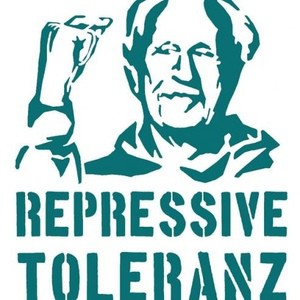 Marcuse’s liberatory socialism is in fact to be a totalitarian bureaucracy where those who criticize leftist orthodoxy in apparently even the slightest way are to be subject to state repression. This is precisely the attitude that the authoritarian Left demonstrates at the present time. Such views are becoming increasingly entrenched in mainstream institutions and in the state under the guise of so-called “political correctness.” Indeed, much of the mainstream “anarchist” movement reflects Marcuse’s thinking perfectly. These “anarchists” ostensibly criticize statism, bureaucracy, capitalism, consumerism, imperialism, war, and repression, and advocate for all of the popular “social justice” causes of the day. “Tolerance” has ostensibly become the ultimate virtue for such people. Yet underneath this “tolerance” is a visceral and often violent hostility to those who dissent from leftist orthodoxy on any number of questions in even a peripheral or moderate way. Indeed, the prevalence of this leftist intolerance within the various anarchist milieus has become the principle obstacle to the growth of a larger and more effective anarchist movement.
Marcuse’s liberatory socialism is in fact to be a totalitarian bureaucracy where those who criticize leftist orthodoxy in apparently even the slightest way are to be subject to state repression. This is precisely the attitude that the authoritarian Left demonstrates at the present time. Such views are becoming increasingly entrenched in mainstream institutions and in the state under the guise of so-called “political correctness.” Indeed, much of the mainstream “anarchist” movement reflects Marcuse’s thinking perfectly. These “anarchists” ostensibly criticize statism, bureaucracy, capitalism, consumerism, imperialism, war, and repression, and advocate for all of the popular “social justice” causes of the day. “Tolerance” has ostensibly become the ultimate virtue for such people. Yet underneath this “tolerance” is a visceral and often violent hostility to those who dissent from leftist orthodoxy on any number of questions in even a peripheral or moderate way. Indeed, the prevalence of this leftist intolerance within the various anarchist milieus has become the principle obstacle to the growth of a larger and more effective anarchist movement.
A functional anarchist, libertarian, or anti-state movement must first and foremost reclaim the liberal tradition of authentic tolerance of the kind that insists that decent regard for other people and a fair hearing for contending points of view on which no one ultimately has the last word must be balanced with the promulgation of ideological principles no matter how much one believes these principles to be “true.” A functional and productive anarchist movement must recognize and give a seat at the table to all of the contending schools of anarchism, including non-leftist ones, and embrace those from overlapping ideologies where there is common ground. A serious anarchist movement must address points of view offered by the opposition in an objective manner that recognizes and concedes valid issues others may raise even in the face of ideological disagreement. Lastly, a genuine anarchist movement must realize that there is no issue that is so taboo that is should be taken off the table as a fitting subject for discussion and debate. Only when anarchists embrace these values will they be worthy of the name.
Sources:
William S. Lind. The Origins of Political Correctness. Accuracy in Academica. 2000. Archived at http://www.academia.org/the-origins-of-political-correctness/. Accessed on May 12, 2013.
Herbert Marcuse. Repressive Tolerance. 1965, 1968. Archived at http://www.marcuse.org/herbert/pubs/60spubs/65repressivetolerance.htm Accessed on May 12, 2013.
Martin Jay. The Dialectical Imagination: A History of the Frankfurt School and the Institute of Social Research. University of California Press, 1966.
http://en.wikipedia.org/wiki/Herbert_Marcuse – cite_note-marcuse.org-9
00:05 Publié dans Philosophie | Lien permanent | Commentaires (0) | Tags : nouvelle gauche, philosophie, keith preston, herbert marcuse, école de francfort, homme unidimensionnel, gauchisme, mai 68, tolérance, tolérance répressive |  |
|  del.icio.us |
del.icio.us |  |
|  Digg |
Digg | ![]() Facebook
Facebook
jeudi, 13 juin 2013
P. Gottfried: My Meetings with Herbert Marcuse
00:05 Publié dans Philosophie, Théorie politique | Lien permanent | Commentaires (0) | Tags : philosophie, herbert marcuse, paul gottfried, théorie politique, politologie, sciences politiques |  |
|  del.icio.us |
del.icio.us |  |
|  Digg |
Digg | ![]() Facebook
Facebook


